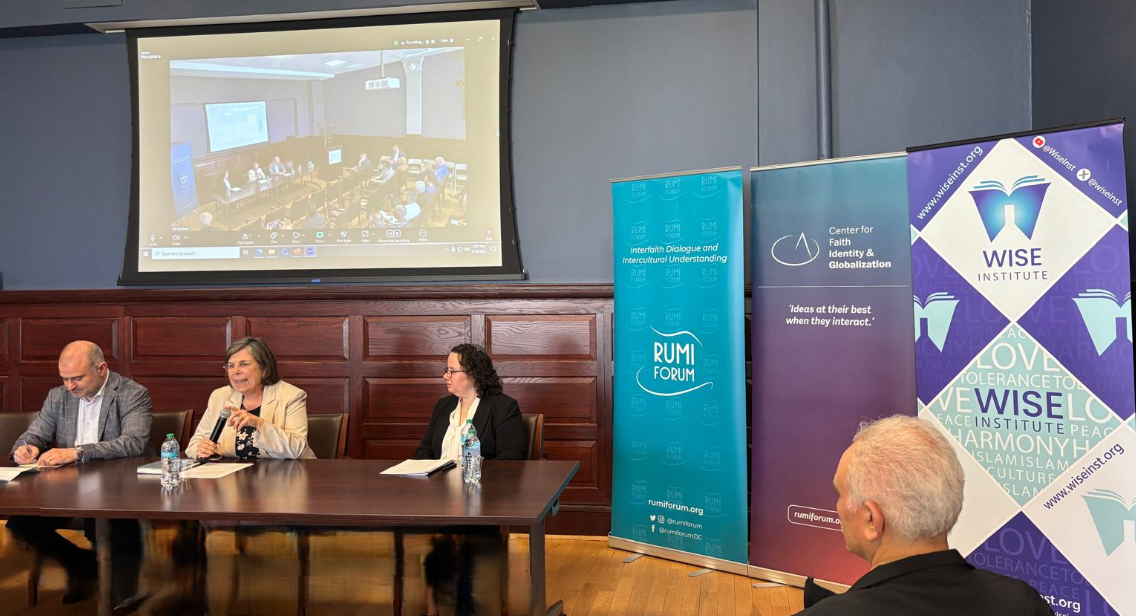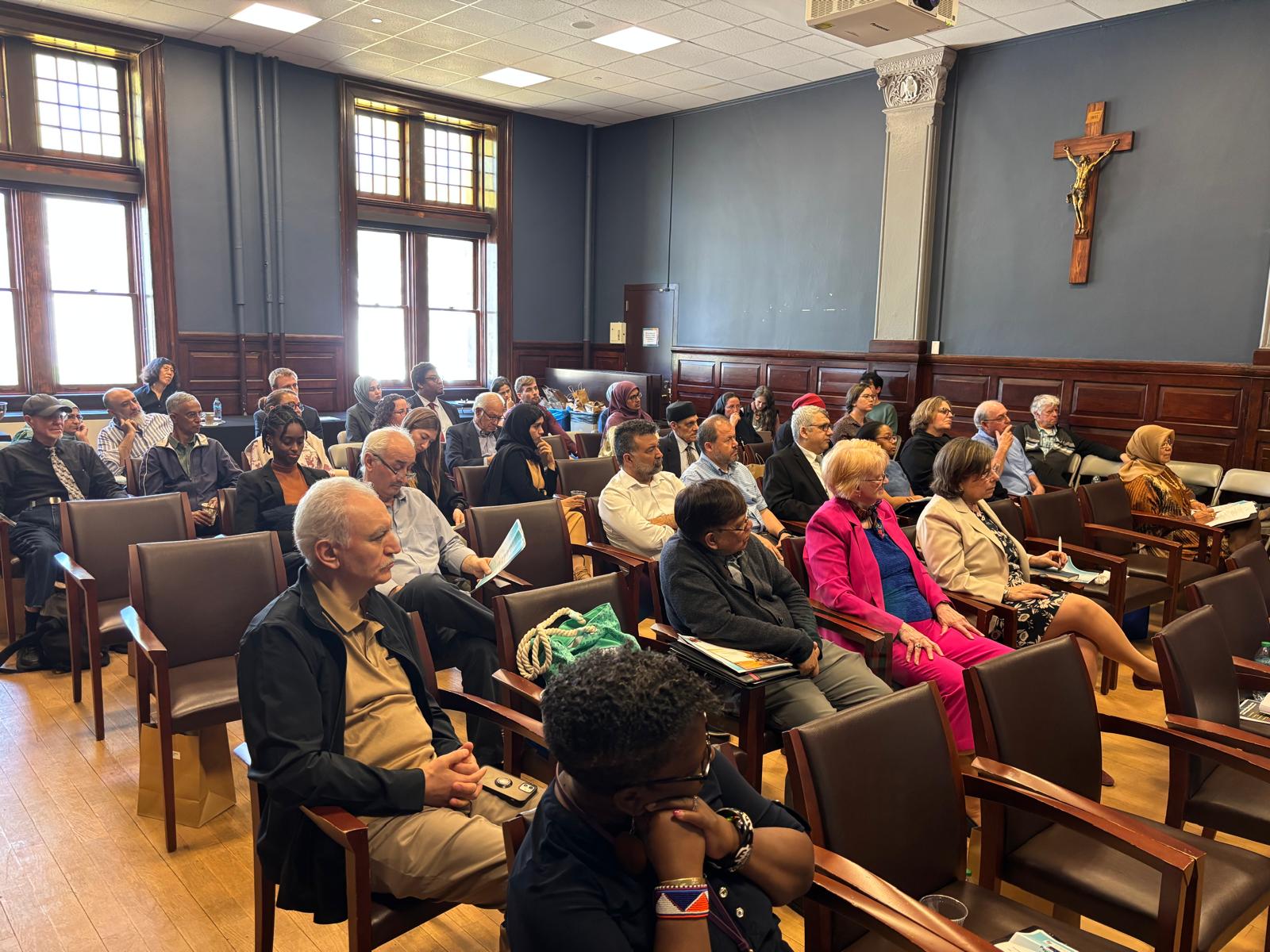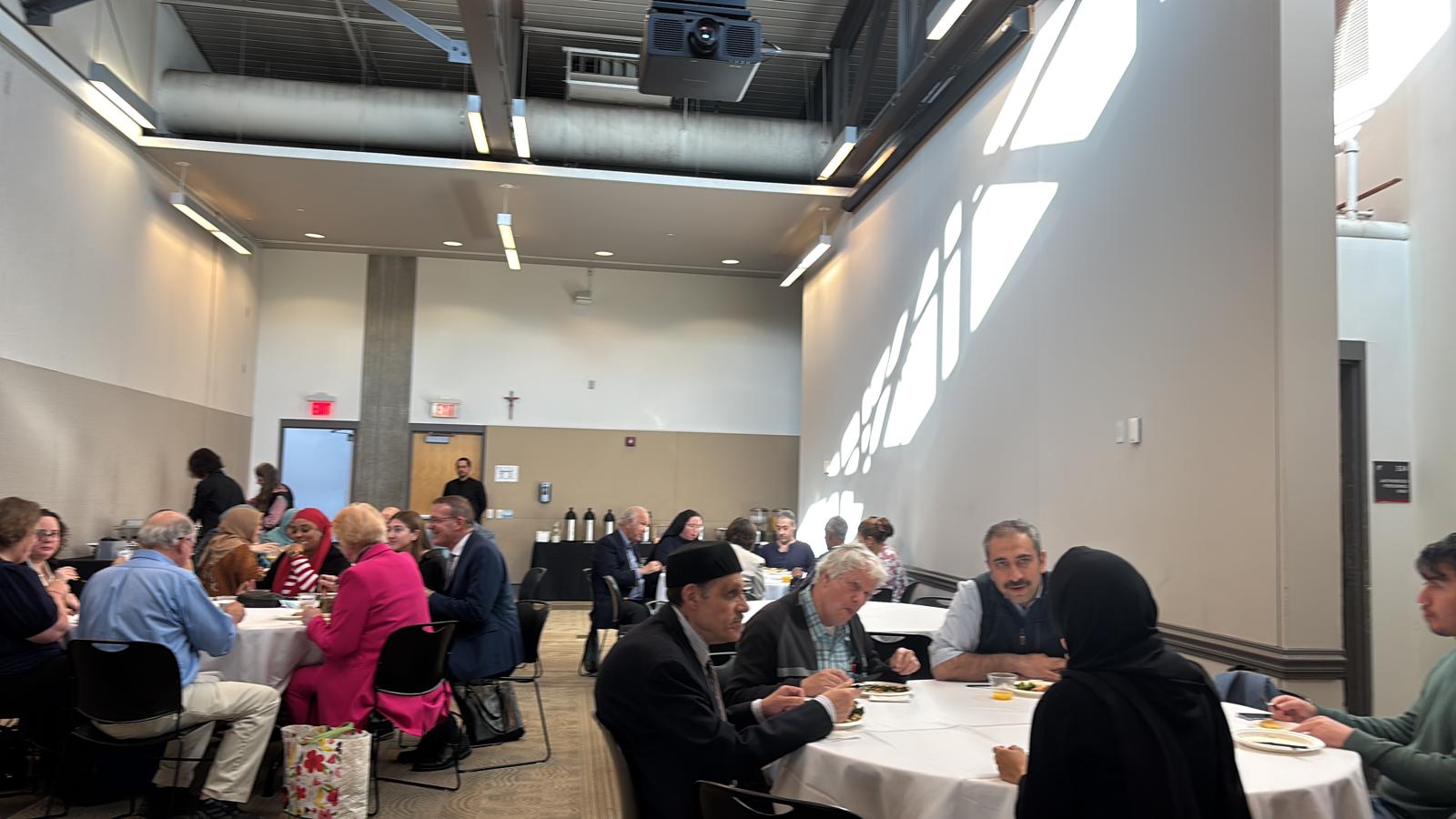Washington, DC Hosts Gathering on Preserving Religious Identity in a Modern World
Dr. Fevzi Saraç highlighted the teachings of Fethullah Gülen, who advocates for peace, compassion, and the promotion of human rights. He elaborated on how these values are integrated into educational initiatives worldwide.

On April 28, 2025, Washington, DC hosted a meaningful and successful conference titled “Transmission of Religious Identity: Experiences from Faith Communities.” The event was organized through the collaboration of the Catholic University of America (CUA), Rumi Forum, WISE Institute, the McLean Center for the Study of Culture and Values, and the Center for Faith, Identity, and Globalization (CFIG). It brought together educators, scholars, religious leaders, and representatives from diverse faith communities to exchange insights on the intergenerational transmission of religious identity.
Opening Remarks and Participants
The program commenced with welcoming remarks from Dr. William A. Barbieri (CUA, School of Theology and Religious Studies, Ordinary Professor of Ethics), who underscored the value of interfaith dialogue and the importance of finding common ground on pressing global issues, such as the transmission of religious identity.
Dr. Jem Sullivan (CUA, School of Theology and Religious Studies, Associate Professor of Practice) also welcomed participants, highlighting the significance of the gathering and its timely focus.

Notable attendees included Dr. Ali Ünsal (Deputy Director, WISE Institute), Dr. Hamdullah Öztürk (Advisor, WISE Institute), Ibrahim Anli (Executive Director, Rumi Forum).
Keynote Address and Panel Sessions
The keynote address was delivered by Prof. Dr. Merylann “Mimi” J. Schuttloffel (CUA, Dept. of Education, Professor Emerita and Brother Patrick Ellis Chair, Senior Fellow at CFIG). In her talk, she reflected on the challenges of sustaining a religious life in contemporary America, especially amidst the influence of dominant popular culture. She emphasized the importance of integrating religious identity into every aspect of daily life — from birthday celebrations to family traditions — offering personal anecdotes to illustrate her message.
The first panel session featured Rabbi Abbi Sharofsky (Director of Intergroup Relations and Rabbi in Residence, JCRC), who discussed how the Jewish community nurtures a strong sense of identity in children through private religious education, supplemented by Sunday schools, services, summer programs, trips, and camps. She also acknowledged the financial demands of these efforts.
Dr. Susan Timoney (CUA, School of Theology and Religious Studies, Associate Professor of Practice in Pastoral Studies) provided insights from the Catholic perspective, noting similar educational practices and the challenges posed by prevailing cultural influences.
Common Challenges and Shared Approaches
In the second session, speakers continued addressing the complexities of preserving religious identity in today’s cultural climate. Rabbi Sharofsky and Dr. Timoney reiterated the shared difficulties their communities face in maintaining effective religious education within a secular environment.
Dr. Fevzi Saraç highlighted the teachings of Fethullah Gülen, who advocates raising a generation rooted in scientific understanding and spiritual values. Gülen emphasizes principles of peace, compassion, and human rights. She discussed how these values are applied in educational initiatives around the world.
The second session concluded with an engaging Q&A session followed by a reception, where participants exchanged ideas in a more informal setting. The event provided a valuable platform for faith communities to share experiences, seek solutions to shared challenges, and develop more effective approaches for transmitting religious identity to future generations.

Closing Reception
The conference concluded with a reception, allowing participants to network and continue their conversations informally. The event provided an invaluable platform for faith communities to share experiences, address common challenges, and collaboratively develop thoughtful strategies for transmitting religious identity to future generations.
